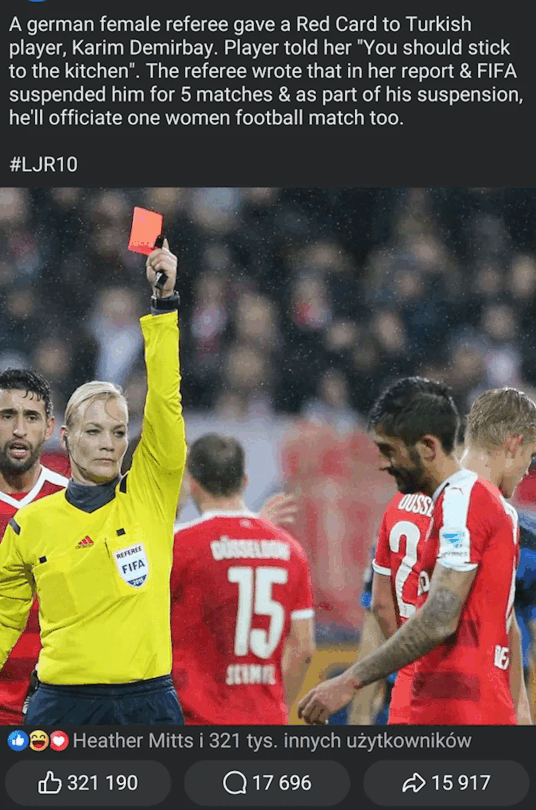#Women in Sport
Explore tagged Tumblr posts
Text
A person can learn about a sport and come to like it through a WAG. Just saying. It's how I learned Football, because despite growing up in an American home, it wasn't until I realized that Gisele Bundchen was at that point married to one of them that I was like "huh, must be interesting."
If you've actively gotten into Football because of Taylor Swift, Hailee Steinfeld, or Olivia Culpo, or Simone Biles, or any other WAG, welcome. It's a really really complicated game of catch. Don't call it that to some people's faces, they will get very angry. You can cry when your team loses, you can cry when the other team has an underdog story. I cried like a baby over Brock Purdy. It's fun. Sports are fun.
If you got into F1 because of Nicole Scherzinger, first of all, hi, you're a real trooper. If you got into F1 because of Shakira, or Taylor, or Carmen or Alexandra, or Lily, or Charlotte, or Isa, or Rebecca, welcome. The sport is insanely toxic also. But like it's really fun to play "Are they gay or just European?" The cars are fast, they're insane, and they compete at a scale that is practically unheard of for a sport. They are the top 20. You can have a favorite driver and a different favorite team. You can have a favorite team principal. You can think a penalty is absolute trash, or that one was warranted. You can think some tracks are better than others. You can run the race on high speed if you watch it after the fact.
It's a valid way to join the sport. I promise.
Women bring women together in so many capacities. My friend got her first job because she went to a networking event for women in a field dominated by men. Why can't women bring women into sports?
#f1#football#nfl football#shakira#taylor swift#nicole scherzinger#carmen mundt#alexandra saint mleux#lily muni he#lily zneimer#Charlotte seine#rebecca donaldson#hailee steinfeld#gisele bundchen#olivia culpo#women in sport#simone biles
98 notes
·
View notes
Text


One of my favorite boxing writers, Malissa Smith, has finally published a sequel to her book on women’s boxing history!
The Promise of Women’s Boxing: A Momentous New Era for the Sweet Science is now available!
The must-read book on the rise of elite women’s boxing
On April 30th, 2022, the first boxing super-fight of the era, headlined by two women and fought at Madison Square Garden, lived up to its hype and then some. The two contestants fought the battle of their lives in front of a sold-out crowd and garnered 1.5 million views through online streaming. It was the culmination of a long, three-centuries arc of women’s boxing history, a history fraught with highs and lows but always imbued with the heart and passion of the women who fought.
In The Promise of Women's Boxing: A Momentous New Era for the Sweet Science, Malissa Smith details the exciting period from the 2012 Olympics through the true “million-dollar baby” women’s super-fights of 2022 and beyond. Rich in content, the stories that emerge focus on boxing stars new and old, important battles, and the challenges women still face in boxing. Smith examines the development of the sport on a global basis, the transition of amateur boxers to the pros, the impact of online streamlining on the sport, the challenges boxing has faced from MMA, and the unprecedented gains women’s boxing has made in the era of the super-fight with extraordinary seven-figure opportunities for elite female stars.
Featuring the stories of women’s boxing icons Katie Taylor, Amanda Serrano, Savannah Marshall, and more, and with a foreword by two-time Olympic gold medalist and three-time undisputed champion Claressa Shields, The Promise of Women’s Boxing offers unprecedented insight into the incredible growth of the sport and the women who have fought in and out of the ring to make it all possible.
34 notes
·
View notes
Text
Will there ever be an end to sexism in sport?
In the 2020s, can you imagine a man in a position of authority committing sexual assault against a woman in public, denying any wrongdoing and the victim being pressurised into giving a false testimony… or a woman being forced to wear impractical, sexually revealing clothing to work…or a woman turning up to work to find that there are no facilities for women, only men?
And yet we see these type of incidences in sport. In 2023, the head of the Spanish Football Federation planted a non-consensual kiss on the lips of a female footballer and then denied any wrong doing. In the same year, professional female rugby players publicly stated that access to women’s toilets is ‘potluck’, adding obstacles to women participating in sport. And two years before that, in the 2021 Euros, the Norwegian International Handball Team were fined for refusing to play their sport in impractical, skimpy bikinis.
These examples have stood out because women have bravely chosen to speak up and take a stand; these women have had enough. Last year, a study demonstrated sexism is commonplace in sport settings’, and a report by the Women and Equalities Select Committee highlighted ‘issues of bullying, harassment, abuse, and discrimination’ across several sports in recent years. Furthermore, the Olympic Broadcasting Services Chief Executive released a statement warning about “an unconscious bias for men and TV” in sport coverage.
How is this tolerated and accepted in sport? What respect are we showing to female athletes at the top of their game? None.
In the UK, we have laws, policies and practices to protect women from abuse and exploitation; we are moving closer to gender equality. And yet, for women in sport, societal norms lag significantly behind.
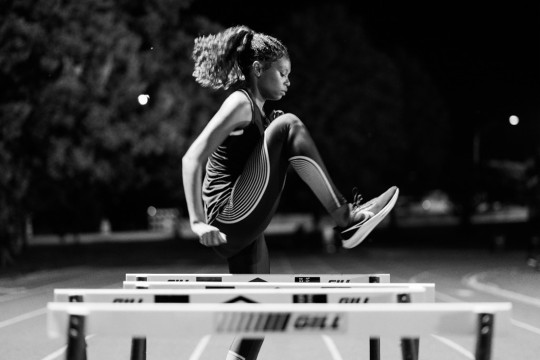
So why is sport so far behind?
This is complex and multifactorial but there are some clear themes that can be addressed:
Women are fundamentally underrepresented. In 2024, Sport England highlighted that women only made up 40.8% of National Governing Body Boards, dropping from 43.2% in 2020. If women aren’t represented in the decision-making of women’s sport, how can we expect women’s needs to be discussed, let alone actioned. The voice of women needs to be just as loud as the voice of men.
Women do not have equal access to funding and facilities, despite their success and achievement. The gender pay gap in sport is no secret; the average gap is 59.1%. However, the funding inequalities are much more far-reaching with a lack of equality in the provision of sports facilities and equipment. How, in 2025 and even at the highest levels of sport, are women’s games being cancelled or postponed due to insufficient facilities or, worse still, to allow men to use the facilities instead?
Sports women are less visible in the media and as the CEO of the Olympic Broadcasting Services stated “(women) are still being filmed in a way that you can identify that stereotypes and sexism remains...”. Media coverage of women’s sport was at 15%, despite women making up 50% of 2024 Olympic athletes. Appropriate portrayal of sportswomen is further hindered by encouragement and, at times obligation, to wear tiny, revealing clothing that shows off a sexualised female body, whilst men wear baggy, comfortable clothing to allow for optimal movement.
The result? This stops the athletes from receiving the deserved attention and praise for their sporting ability and minimises them to simply what their body looks like whilst doing the sport. How can we expect girls to aspire to achieve and succeed in sport, when they are lucky to see their role models in the media at all? And how can we expect girls to aspire to be strong and dominant in sport when women – in stark contrast to men – are socially constructed to be submissive, gentle and weak?
Women do not tend to report sexism. There are many anecdotal accounts that sexism in sport is underreported. Research, published in 2024, demonstrated that ‘Participants often felt unable to raise the issue of sexist behaviour with someone in their organisation due to believing that there would be a negative impact on their reputation, negative consequences for their career, that it would not make a difference, or that it was not safe enough to do so, assumptions which are correct based on the organisational responses to sexism reported within this study’. If women, even those whom we look up to and expect to be the best, are not safe to speak out, how will things ever change?
So what needs to change and whom do we need to call on:
Following their report, the Women and Equality Select Committee has already called on the Government to act on their findings, including how concerns and grievances are dealt with. The Government has accepted the recommendations, but there must be a clear time frame for putting this in place and all people, whatever their level of sporting ability, must be able to access the processes.
We need meaningful action plans from National Governing Bodies to ensure equal representation of women in policy determination and other decision-making, at all levels. We need policies, plans and practices that support true equality of women in sport.
Government, sponsors and sport organisations must work to ensure fairer funding across all levels of sport participation. There needs to be equal access to facilities and equipment. Women should never be in a position where the lack of facilities makes them feel unsafe, nor should their games be cancelled to prioritise men’s sport.
We need changes in media coverage and the portrayal of sportswomen. We need to see an end to the sexualization of female athletes, with an appreciation for their sporting ability. It is helpful that the Olympic Broadcasting Services Chief Executive has called out sexism in the coverage of sporting events. However, misogyny in media reporting must continue to be challenged and addressed, and athletes must be protected from abuse and harassment through social media. All women and girls participating in sport must have the right and be encouraged to wear practical comfortable clothing with no inappropriate restrictions, such as the size of their outfits.
So, what can we do as individuals to create this change?
We each need to become aware of our unconscious biases. This can be done through awareness of language used, receiving feedback, and embracing diverse perspectives.
Women need to be prepared to volunteer for leadership roles and sit on regulatory boards to ensure the female perspective is heard. Men need to facilitate this. We need to start challenging all incidences of sexism in sport and, if not witnessed ourselves, we need to support and stand with those who do stand up.
In conclusion, in order for an end to sexism in sport, much work needs to be done and we all have a part to play. This is vital and urgent if we are to reverse the worryingly increasing gender participation gap identified by Sport England, and make sport more inclusive with benefits to girls, women and our society. The view that sport was created by men, for men, needs to shift.
Further reading links:
Azumara, L. (2020). Sexism in Sports. CLA Journal, 8, 76-93.
Bowes, A., & Culvin, A. (Eds.). (2021). The professionalisation of women's sport : Issues and debates. Emerald Publishing Limited.
Cooky, C. (2017). ‘We cannot stand idly by’: A necessary call for a public sociology of sport. Sociology of Sport Journal, 34(1), 1–11.
How to Start a Movement: Building a Social and Political Campaign
Hyde-Clarke, N., & Fonn, B. K. (2024). Challenging Norms and Practices in Women’s Beach Handball: The Bikini Debate. Media and Communication, 12.
Murray, P., Lord, R., & Lorimer, R. (2022). ‘It’s just a case of chipping away': A postfeminist analysis of female coaches’ gendered experiences in grassroots sport. Sport, Education and Society, 27(4), 475-488.
Schultz, J. 2024. Regulating Bodies. Elite Sport Policies and Their Unintended Consequences. Oxford: Oxford University Press.
Steidinger, J. (2020). Stand up and shout out: Women’s fight for equal pay, equal rights, and equal opportunities in sports. Rowman & Littlefield.
Velija, P. (2022). A sociological analysis of the gender pay gap data in UK sport organisations. In Gender equity in UK sport leadership and governance (pp. 197-216). Emerald Publishing Limited.
Yordanova, N., Kozhuharova, P., Simeonova, T., Stoychev, C., Petkov, P., & Ivanova, V. (2017). Prevention of Discrimination and Violence in Grassroot Sport in School and Sports Clubs. Eur. J. Train. Dev. Stud, 4, 30-41.
15 notes
·
View notes
Text

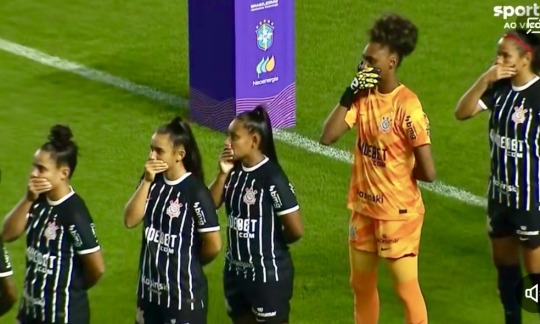
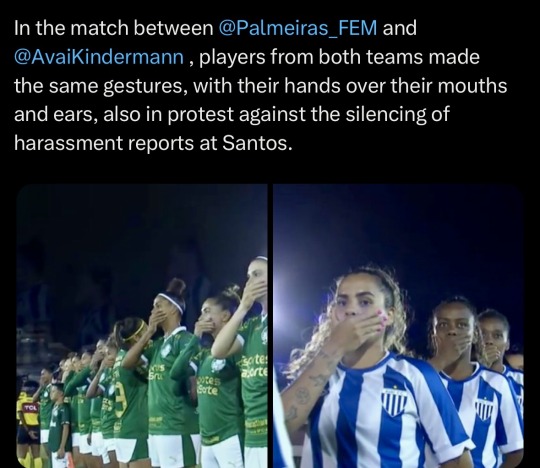

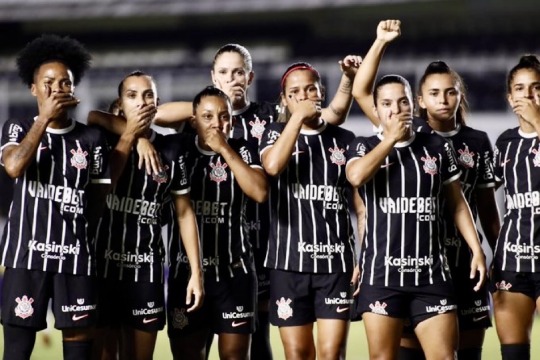
47 notes
·
View notes
Text

"Just because it’s the way things have always been doesn’t mean it’ the way it needs to be."
Do you see the message ? Because I do.
22 notes
·
View notes
Text
If anyone has a good quality pic of Rhea Ripley during her entrance at the end last night's Monday Night Raw please let me know. I am kinda obsessed with how her hair is growing out more now.
Please and thank you 🫶🫶
#rhea ripley#mami rhea#rhea ripley wwe#rhea ripley x Reader#the judgment day wwe#the judgement day#tjd wwe#wwe#world wrestling entertainment#women's wrestling#women's wrestlers#women in sport#monday night raw
23 notes
·
View notes
Text

Althea Gibson by Allison Adams
Althea Gibson (1927 – 2003) was an American tennis player and professional golfer. She became the first black athlete to break through the color line of international tennis. In 1956, she became the first person of color to win a Gram Slam title. The following year, she won both Wimbledon and the US Nationals, and won both again the following year. In all, she won 11 Grand Slam tournaments, including six doubles titles, In the early 1960s she also became the first black player to compete on the women’s professional golf tour.
At a time when racism and prejudice were widespread in sports and in society, it was enormously difficult to play in professional sports if you were black, let alone a woman, but she made history by competing not only in tennis but in the golf circuit as well. “I am honored to have followed in such great footsteps,” wrote Venus Williams, “Her accomplishments set the stage for my success, and through players like myself and Serena and many others to come, her legacy will live on.”
#althea gibson#Allison adams#art#artwork#female portrait#herstory#women in history#female athletes#women in sport#black history#women’s sports#tennis#golf#irl women/girls
23 notes
·
View notes
Text
Linda Caicedo nominated for the Ballon D'or and played three world cups whilst being just eighteen years old she's already a goat.
#linda caicedo#real madrid femenino#colombia wnt#ballon d'or#sports#woso#football#women's football#women in sport#colwnt#2023 ballon d'or
51 notes
·
View notes
Text

5 notes
·
View notes
Text
instagram
From MSG networks ”Women of the W”. Full discussion on MSG+
9 notes
·
View notes
Text

#women in sport#women's sports#women's judo#women's history#sports history#martial arts#herstory#radfems please touch#radfems do interact#radfems do touch#radfems please interact#proud radical feminist#proud radfem
51 notes
·
View notes
Text
Women in Sports: Rodeo (Book, Elizabeth Van Steenwyk, 1978)
You can digitally borrow it here.

#internet archive#book#books#obscure books#rodeo#women in sport#women in sports#sport history#sports history#sporting history#1978#1970s#70s
7 notes
·
View notes
Text
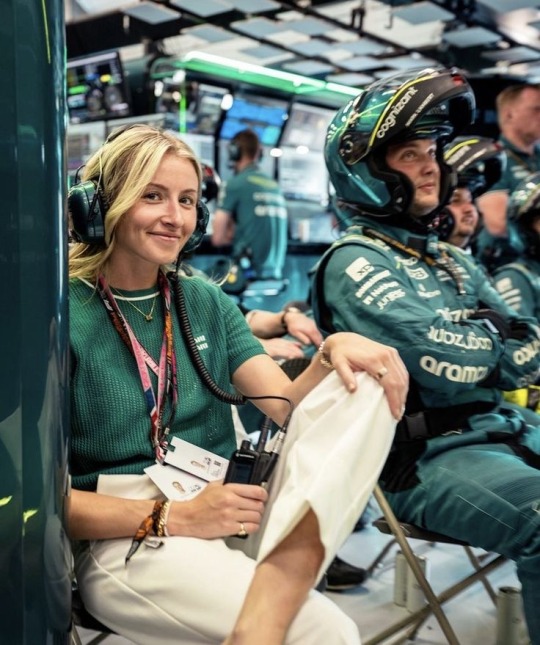
words cannot explain how proud i was watching Leah at the UN today. so well spoken and so inspirational, i know this injury has been so hard for her but you can see how much she’s changed in her recovery, how her whole perspective on everything has changed. such a inspiration to any young girls wanting more for the future.
20 notes
·
View notes
Note
“I was born into a family of athletes. Encouraged by my parents and siblings, I competed in sports from a young age, and I followed in my sister’s footsteps, climbing the ranks to become an elite cyclocross racer. Over the past few years, I have had to race directly with male cyclists in women’s events. As this has become more of a reality, it has become increasingly discouraging to train as hard as I do only to have to lose to a man with the unfair advantage of an androgenized body that intrinsically gives him an obvious advantage over me, no matter how hard I train.
I have decided to end my cycling career. At my last race at the recent UCI Cyclocross National Championships in the elite women’s category in December 2022, I came in 4th place, flanked on either side by male riders awarded 3rd and 5th places. My sister and family sobbed as they watched a man finish in front of me, having witnessed several physical interactions with him throughout the race.
Additionally, it is difficult for me to think about the very real possibility I was overlooked for an international selection on the US team at Cyclocross Worlds in February 2023 because of a male competitor.
Moving forward, I feel for young girls learning to compete and who are growing up in a day when they no longer have a fair chance at being the new record holders and champions in cycling because men want to compete in our division. I have felt deeply angered, disappointed, overlooked, and humiliated that the rule makers of women’s sports do not feel it is necessary to protect women’s sports to ensure fair competition for women anymore.”
— Hannah Arensman
x
25 notes
·
View notes
